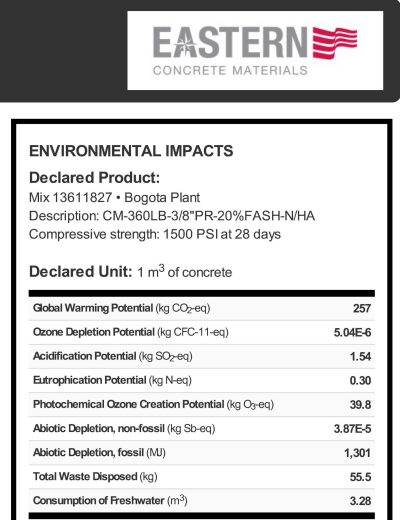Sources: Office of New Jersey Governor Phil Murphy; CP staff
In a groundbreaking policy move, the State of New Jersey will provide corporation business tax and gross income tax credits for costs of preparing Environmental Product Declarations that assess concrete mixes’ global warming potential, expressed on EPDs as kg of carbon dioxide equivalent per cubic yard or meter. The just-signed Bill S278, or Low Embodied Carbon Concrete Leadership Act, also offers tax credits for state project-bound orders (> 50 yd.) of concrete that has a) lower carbon emissions associated with its production, including mining, refining, manufacturing or shipping; or b) deploys carbon capture, utilization, or storage technology to remove or recycle CO2 generated through the production cycle.

“The signing of this bill represents a significant step in our efforts to promote sustainable economic growth,” says Senator Linda Greenstein, lead S287 sponsor. “It is the first of its kind in the country and will not only help to reduce emissions from the building sector, but also incentivize New Jersey businesses to invest in low-carbon technologies. A win-win for our environment and economy.”
“As efforts to decarbonize our economy become more urgent, we must also ensure that they become increasingly more economically attractive,” adds Governor Phil Murphy. “Bills like these will stimulate economic activity and growth in the industries that remain key to our climate solution. This legislation will further support the construction of greener, cleaner buildings and roadways in New Jersey.”
Related articles
Feds earmark $100M to decarbonize cement, companion industries
Federal agencies trigger a third flourish for Environmental Product Declarations